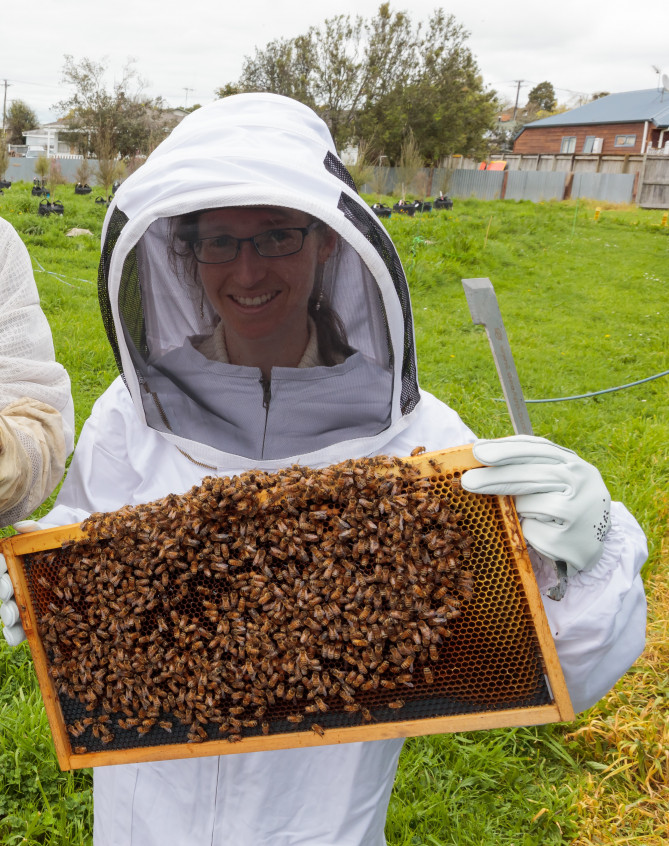Are toxic metals testing the honeybee’s mettle?

Dr Megan Grainger, University of Waikato, will study how toxic metal accumulation affects the brain of honeybees and hive health
The decline in honeybee populations and colony health is a global crisis and there has been increasing loss of honeybee colonies in recent times in Aotearoa. Honeybees are important not just for the honey industry, but also for pollination of food crops and a wide variety of other plants. Honeybee decline jeopardises both ecosystems and economies, yet the reasons for this are still not well understood. While a combination of different causes are thought to play a role in this decline, one largely overlooked factor is the exposure of honeybees to inorganic elements, such as toxic metals. Unlike many other toxins, metals do not break down to less toxic products, which means they accumulate in bees as well as in their hives. Chronic exposure to even low concentrations of toxic metals may cause a deterioration in the function and health of the entire colony over multiple generations.

Dr Megan Grainger in the field. Photo supplied
Dr Grainger has been awarded a Marsden Fund Fast-Start grant to assess the impact of metals at the cellular, individual bee, and colony level. She will examine the relationship between metal accumulation in specific regions of the bee brain and changes in gene expression, colony function and overall health. The research will involve placing bee colonies on land contaminated by cadmium, for example, from extensive fertiliser use. Dr Grainger will then monitor the colonies over successive years for various measures of hive health. This study will provide important new knowledge on the long-term effects of toxic metals on honeybee colonies.
